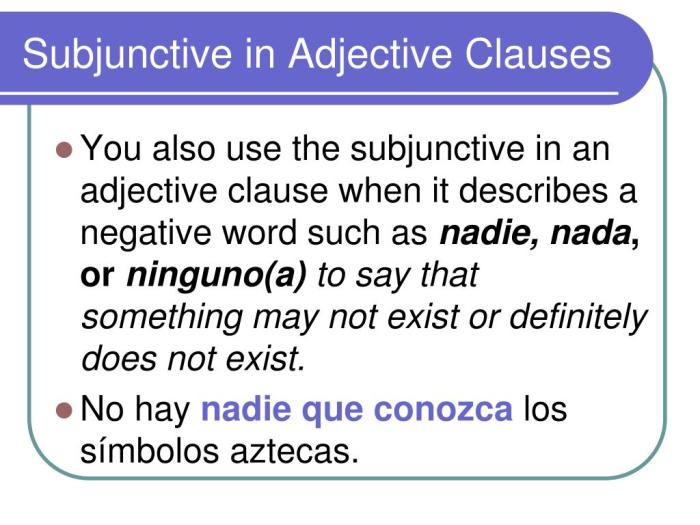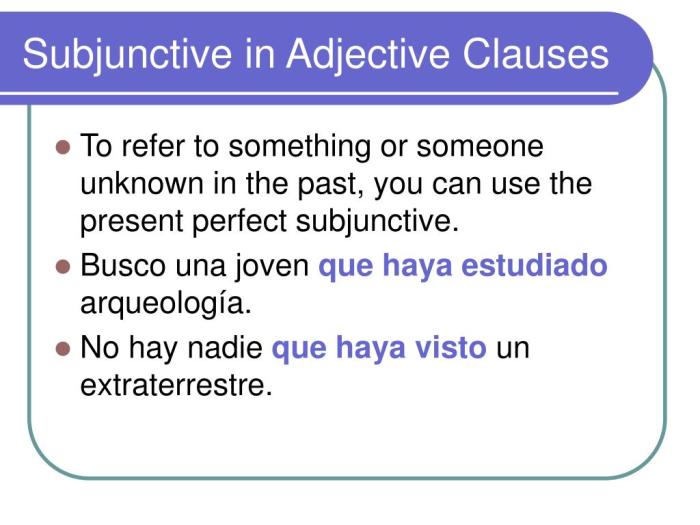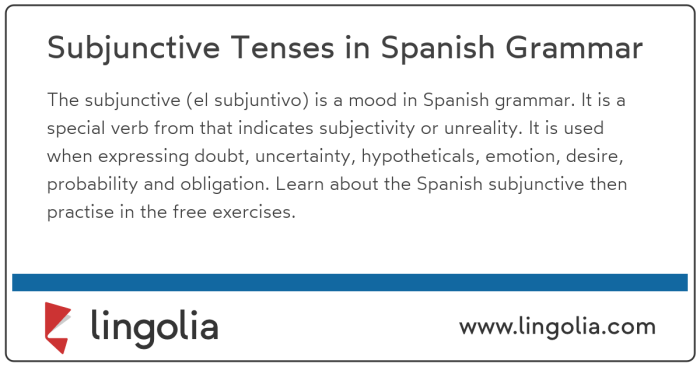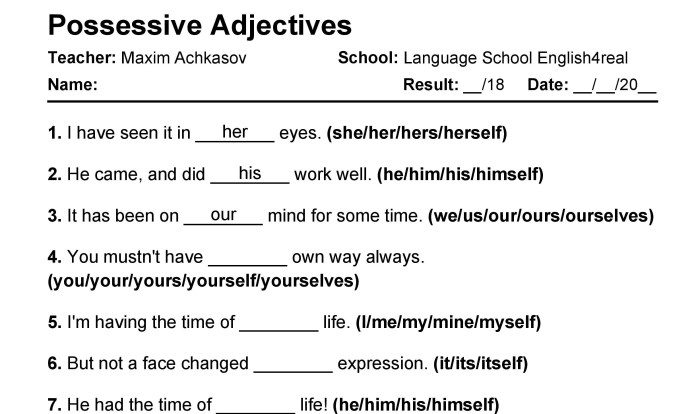Subjunctive in adjective clauses practice – Embark on an exploration of subjunctive in adjective clauses, a grammatical concept that adds nuance and precision to your writing. This comprehensive guide delves into the intricacies of this grammatical tool, providing a clear understanding of its types, usage, formation, and practical applications.
Delve into the realm of subjunctive in adjective clauses, where you’ll discover its ability to express wishes, desires, doubts, uncertainties, and possibilities. Through real-life examples and engaging exercises, you’ll gain a deep understanding of how this grammatical device enhances the meaning and tone of your writing.
Subjunctive in Adjective Clauses
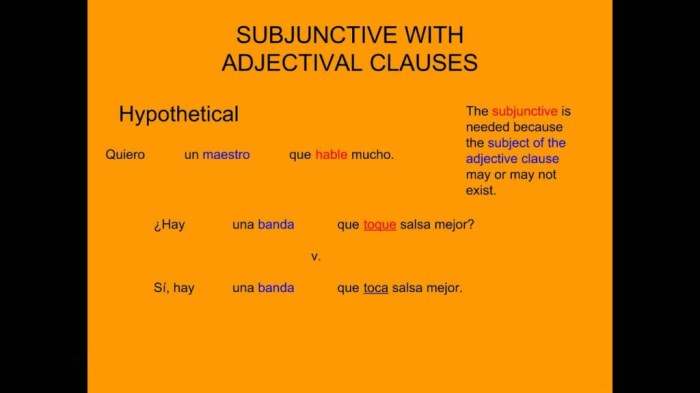
The subjunctive mood is used in adjective clauses to express a variety of meanings, including wishes, desires, doubts, and possibilities. Adjective clauses are subordinate clauses that describe or modify a noun or pronoun in the main clause. They are introduced by relative pronouns such as who, which, and that.
Types of Subjunctive in Adjective Clauses
There are two main types of subjunctive in adjective clauses: restrictive and non-restrictive.
- Restrictive subjunctive clausesrestrict the meaning of the noun or pronoun they modify. They are essential to the meaning of the main clause and cannot be omitted.
- Non-restrictive subjunctive clausesdo not restrict the meaning of the noun or pronoun they modify. They provide additional information that is not essential to the meaning of the main clause and can be omitted.
Usage of Subjunctive in Adjective Clauses, Subjunctive in adjective clauses practice
The subjunctive mood is used in adjective clauses to express the following:
- Wishes or desires: I wish I had a million dollars.
- Doubts or uncertainty: I doubt that he will come.
- Possibilities: It is possible that she will win.
Formation of Subjunctive in Adjective Clauses
The subjunctive mood in adjective clauses is formed by using the following verb forms:
| Person | Present Subjunctive | Past Subjunctive |
|---|---|---|
| 1st singular | be + I | were + I |
| 2nd singular | be + you | were + you |
| 3rd singular | be + he/she/it | were + he/she/it |
| 1st plural | be + we | were + we |
| 2nd plural | be + you | were + you |
| 3rd plural | be + they | were + they |
FAQ Resource: Subjunctive In Adjective Clauses Practice
What are the different types of subjunctive in adjective clauses?
There are two main types: restrictive and non-restrictive.
How do I use subjunctive in adjective clauses to express a wish or desire?
Use the subjunctive form of the verb to express a wish or desire that is contrary to fact or reality.
What are the rules for forming subjunctive in adjective clauses?
The rules vary depending on the tense of the main clause.
